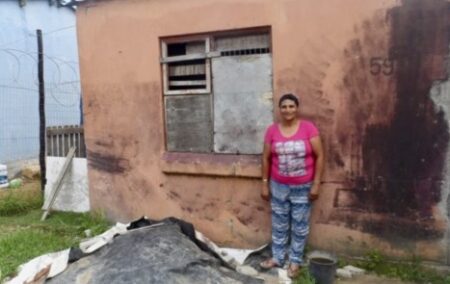Politics in South Africa seemed set for a welcome spell of uncertainty in 2008 when ANC dissidents broke away to form a new opposition movement.
The break-away didn’t come to much, but I felt confident enough at the time to write in an essay – headline, Democracy Intact – that it seemed clear that the ‘liberation mystique’ was fading and that South Africans, ‘as individuals’, were exercising ‘the democratic prerogative that was implicit in their participation in the historic poll of 1994 – and, indeed, in the struggle itself – but deferred, on trust, in the intervening years’.
It was encouraging that, at the time, ‘countervailing sentiment cannot be defined racially in the pattern so fastidiously fashioned by the architects of apartheid’, and that there was a good chance of off-setting the risk, given the electoral might of the ANC, ‘that the country was settling into much the same mould it had been in since 1948: more or less changeless politics presided over by an unassailable governing party’.
Thirteen years later, it is clear the deferring has gone on for longer than I’d thought likely at the time – and not only because the ANC dissidents who went on to form Cope ultimately failed for whatever reason to capture the electorate’s imagination.
Even in 2008, however, I had an acute sense that a key inhibitor of the potential dynamism of South Africa’s young democracy ‘lay not in the party structures of the ANC or the institutional fabric of its administration, but in the populace at large’ – in the habits of mind of vast numbers of voters who, it often seemed, misperceived 1994 as the delivery of a solution, rather than as the first step towards achieving one.
‘Poverty of desire’
‘If, in one sense,’ I wrote, ‘expectations were too high [in the first democratic election], in another, they were insufficient. Too many people expected too little, and demanded less – even of themselves. The worst poverty, the condition in which the vast majority still live, is always, perhaps, a poverty of desire.’
I often think that people settle for less than they deserve because they dare not expect anything more than they are used to.
Of course, in 2008 things were actually looking up. As my senior colleague Frans Cronje has pointed out, the economic stabilisation secured in the Mandela and Mbeki eras ‘allowed for a much improved economic growth performance between 1994 and 2007, relative to what had occurred in the 1980s and the first three years of the 1990s’.
‘Interest rates that peaked at over 20% in 1996 would be cut in half. In the 1990s consumer debt levels (a measure of untapped spending potential) sat 25 percentage points below where they [were in 2019]. Bond yields would be cut in half. There was considerable cheap and surplus electricity – and Mr Mbeki would govern through the steepest commodity price cycle the world had ever seen.
‘Matched with some of the good sense in the thinking underpinning the second iteration of the RDP policy and the GEAR policy of 1996, the data tells the story of what happened next:

.

The change for the worse since 2008 is reflected in stagnant economic growth, soaring unemployment, feeble rates of investment, rising government debt and collapsing infrastructure.
In a week from now, the focus will be on government performance closest to where and how people live.
Not a leap in the dark
The choice voters face is not a leap in the dark: the media is crammed with credible accounts – the bulk of them based on the government’s own reports – of which towns and cities work, and which don’t. It is up to residents living under failing administrations and no one else to choose a better life.
But if there is good reason to believe that bad administrators will be punished, the scale of change will hinge on a critical mass wanting something more, and actively choosing to get it. The risk will be that many will settle for too little, and end up getting less.
[Photo: Joseph Chirume for GroundUp]
If you like what you have just read, support the Daily Friend


